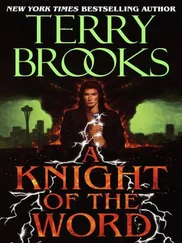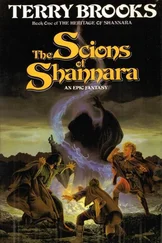The strike at Midwest Continental Steel had been going on for one hundred and seven days, and there was no relief in sight. This was bad news and not just for the company and the union. The mill employed twenty–five percent of the town's working population, and when twenty–five percent of a community's spending capital disappears, everyone suffers. Mid‑Con was at one time the largest independently owned steel mill in the country, but after the son of the founder died and the heirs lost interest, it was sold to a consortium. That produced some bad feelings all by itself, even though one of the heirs stayed around as a nominal part of the company team. The bad feelings grew when the bottom fell out of the steel market in the late seventies and early eighties in the wake of the boom hi foreign steel. The consortium underwent some management changes, the last member of the founding family was dismissed, the twenty–four–inch mill was shut down, and several hundred workers were laid off. Eventually some of the workers were hired back and the twenty–four–inch was started up again, but the bad feelings between management and union were by then so deep–seated and pervasive that neither side could bring itself ever again to trust the other.
The bad feelings had come to a head six months earlier, when the union had entered into negotiations for a new contract. A yearly cost–of–living increase in the hourly wage, better medical benefits, an expansion of what qualified as piecework, and a paid–holiday program were some of the demands on the union's agenda. A limited increase without escalators in the hourly wage over the next five years, a cutback in medical benefits, a narrowing down of the types of payments offered for piecework, and an elimination of paid holidays were high on the list of counterdemands made by the company. A deadlock was quickly reached. Arbitration was reftised by both sides, each choosing to wait out the other. A strike deadline was set by the union. A back–to–work deadline was set by the company. As the deadlines neared and no movement was achieved
in the bargaining process, both union and company went public with their grievances. Negotiators for each side kept popping up on television and radio to air out the particulars of the latest outrage perpetrated by the other. Soon both sides were talking to everyone but each other.
Then, one hundred and seven days ago, the union had struck the fourteen–inch and the wire mill. The strike soon escalated to include the twenty–four–inch and the twelve–inch, and then all of MidCon was shut down. At first no one worried much. There had been strikes before, and they had always resolved themselves. Besides, it was springtime, and with the passing of another bitterly cold Midwest winter, everyone was feeling hopeful and renewed. But a month went by and no progress was made. A mediator was called in at the behest of the mayor of Hopewell and the governor of the State of Illinois and with the blessing of both union and management, but he failed to make headway. A few ugly incidents on the picket line hardened feelings on both sides. By then, the effect of the strike was being felt by everyone–smaller companies who did business with the mill or used their products, retailers who relied on the money spent by the mill's employees, and professional people whose clientele was in large part composed of management and union alike. Everyone began to choose sides.
After two months, the company announced that it would no longer recognize the union and that it would accept back those workers who wished to return to their old jobs, but that if those workers failed to return in seven days, new people would be brought in to replace them. On June 1, it would start up the fourteen–inch mill using company supervisors as workers. The company called this action the first step in a valid decertification process; the union called it strikebreaking and union busting. The union warned against trying to use scabs in place of "real" workers, of trying to cross the picket line, of doing anything but continuing to negotiate with the union team. It warned that use of company people on the line was foolhardy and dangerous. Only trained personnel should attempt to operate the machinery. The company replied that it would provide whatever training was deemed necessary and suggested the union start bargaining in good faith.
From there, matters only got worse. The company started up the fourteen–inch several times, and each time shut it down again after only a few days. There were reports by the union of unnecessary injuries and by the company of sabotage. Replacement workers were bused in from surrounding cities, and fights took place on the picket line. The national guard was brought in on two occasions to restore order. Finally MidCon shut down again for good and declared that the workers were all fired and the company was for sale. All negotiations came to a halt. No one even bothered to pretend at making an effort anymore. Another month passed. The pickets continued, no one made any money, and the community of Hopewell and its citizens grew steadily more depressed.
Now, with the summer heat reaching record highs, spring's hopes were as dry as the dust that coated the roadways, and the bad feelings had burned down to white–hot embers.
Old Bob reached Lincoln Highway, turned on the lighted arrow off Sinnissippi Road, and headed for town. He passed the Kroger supermarket and the billboard put up six months ago by the Chamber of Commerce that read WELCOME TO HOPEWELL, ILLINOIS! WE'RE GROWING YOUR WAY! The billboard was faded and dust–covered in the dull shimmer of the late–morning heat, and the words seemed to mock the reality of things. Old Bob rolled up the windows and turned on the air. There weren't any smells from here on in that mattered to him.
He drove the combined four–lane to where it divided into a pair of one–ways, Fourth Street going west into town, Third Street coming east. He passed several fast–food joints, a liquor store, a pak of gas stations, Quik Dry Cleaners, Rock River Valley Printers, and an electrical shop. Traffic was light. The heat rose off the pavement in waves, and the leaves on the trees that lined the sidewalks hung limp in the windless air. The men and women of Hopewell were closeted in their homes and offices with the air conditioners turned on high, going about the business of their lives with weary determination. Unless summer school had claimed them, the kids were all out at the parks or swimming pools, trying to stay cool and keep from being bored. At night the temperature would drop ten to fifteen degrees and there might be a breeze, but still no one would be moving very fast. There was a somnolence to the community that suggested a long siesta in progress, a dullness of pace that whispered of despair.
Old Bob shook his head. Well, the Fourth of July was almost here, and the Fourth, with its fireworks and picnics and the dance in the park, might help take people's minds off their problems.
A few minutes later he pulled into a vacant parking space in front of Josie's and climbed out of the cab. The sun's brightness was so intense and the heat's swelter so thick that for a moment he felt light–headed. He gripped the parking mirror to steady himself, feeling old and foolish, trying desperately to pretend that nothing was wrong as he studied his feet. When he had regained his balance sufficiently to stand on his own, he walked to the parking meter, fed a few coins into the slot, moved to the front door of the coffee shop, and stepped inside.
Cold air washed over him, a welcome relief. Josie's occupied the corner of Second Avenue and Third Street across from the liquor store, the bank parking lot, and Hays Insurance. Windows running the length of both front walls gave a clear view of the intersection and those trudging to and from their air–conditioned offices and cars. Booths lined the windows, red leather fifties–era banquettes reupholstered and restitched. An L-shaped counter wrapped with stools was situated farther in, and a scattering of tables occupied the available floor space between. There were fresh–baked doughnuts, sweet rolls, and breads displayed in a glass case at the far end of the counter, and coffee, espresso, hot chocolate, tea, and soft drinks to wash those down. Josie's boasted black cows, green rivers, sarsaparillas, and the thickest shakes for miles. Breakfast was served anytime, and you could get lunch until three, when the kitchen closed. Takeout was available and frequently used. Josie's had the best daytime food in town, and almost everyone drifted in to sample it at least once or twice a week. Old Bob and his union pals were there every day. Before the mill was shut down, only those who had retired carne in on a regular basis, but now all of them showed up every morning without fail. Most were already there as Old Bob made his way to the back of the room and the clutch of tables those who had gotten there first had shoved together to accommodate latecomers. Old Bob waved, then detoured toward the service counter. Carol Blier intercepted him, asked how he was doing, and told him to stop by the office sometime for a chat. Old Bob nodded and moved on, feeling Carol's eyes following him, measuring his step. Carol sold life insurance.
Читать дальше











